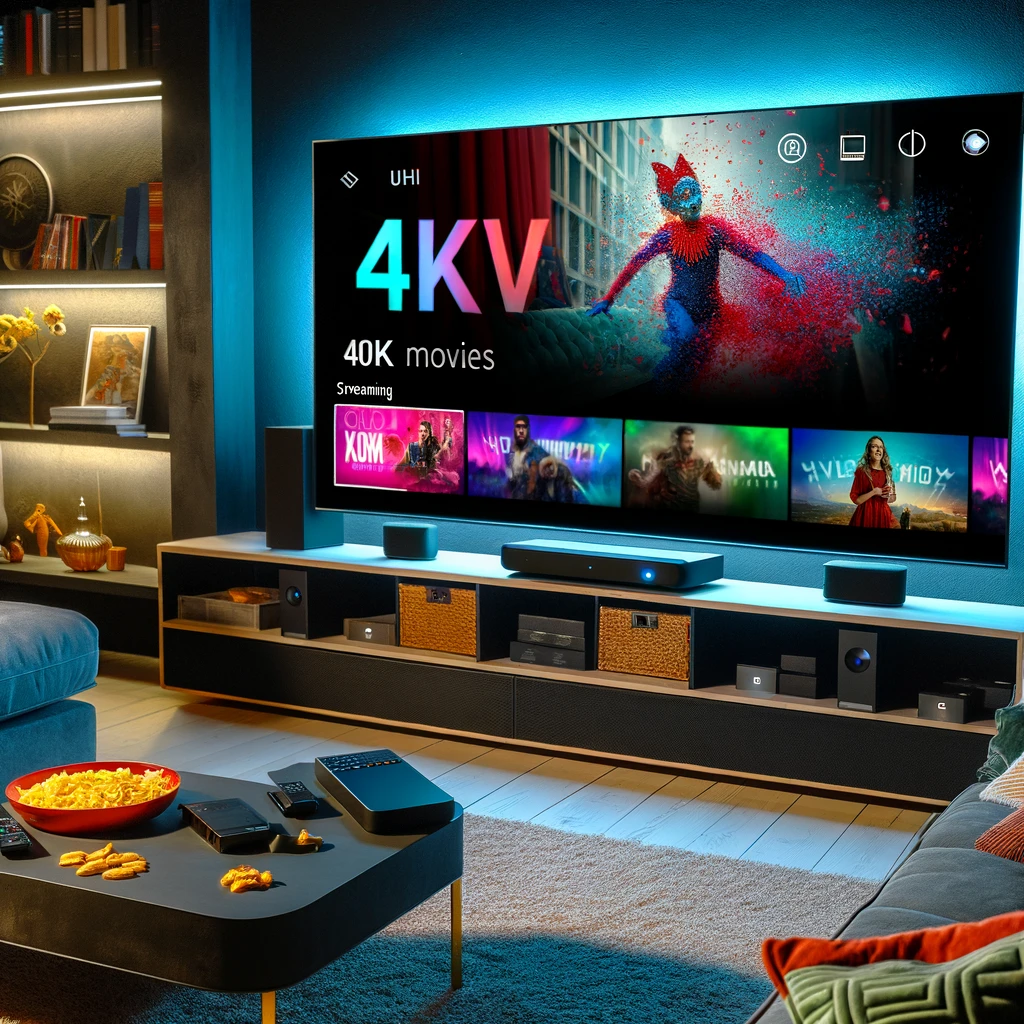With the rise of ultra-high-definition content, knowing how to stream 4K movies on IPTV is essential for cinephiles and tech enthusiasts alike. 4K movies offer four times the resolution of standard HD, providing crystal-clear images and vibrant colors that enhance your viewing experience. Whether you’re streaming action-packed blockbusters or visually stunning documentaries, IPTV makes it easy to access a wide range of 4K content.
What You Need to Stream 4K Movies on IPTV
To get started with how to stream 4K movies on IPTV, you’ll need the right setup. Here’s a quick guide to ensure you’re fully equipped:
1. A 4K-Compatible Device
First and foremost, you’ll need a 4K-compatible device, such as a 4K TV or a monitor. Ensure your device supports UHD (Ultra-High Definition) streaming so you can fully enjoy the visual quality of 4K movies.
2. High-Speed Internet Connection
Streaming 4K movies requires a fast and stable internet connection. To avoid buffering and interruptions, it’s recommended to have a minimum speed of 25 Mbps. If your connection is slower, your IPTV provider may automatically downgrade the resolution to HD.
For tips on improving your internet speed, check out this guide on internet speed optimization.
3. IPTV Service with 4K Content
Not all IPTV services offer 4K movies, so make sure to choose a provider that includes UHD streaming in their library. DARTV, for example, offers a wide variety of 4K films and series, ensuring you always have access to high-quality content. Visit the DARTV blog for more details on their 4K offerings.
4. HDMI 2.0 or Higher
For those using a streaming device like a Roku, Amazon Fire Stick, or Chromecast, make sure you’re using an HDMI 2.0 cable or higher to support 4K streaming. This ensures that the signal from your IPTV service to your display device maintains ultra-high-definition quality.
Steps to Stream 4K Movies on IPTV
1. Set Up Your 4K Device
Once you’ve ensured that your device supports 4K streaming, configure the resolution settings on your IPTV app or device. Most platforms will automatically detect the highest possible resolution your device can handle, but double-check that 4K is selected.
2. Choose a 4K Movie
Now that you know how to stream 4K movies on IPTV, it’s time to browse for 4K content. IPTV providers like DARTV often have a dedicated section for 4K movies, making it easy to find high-resolution films. Be sure to select a movie that supports 4K streaming.
3. Check Your Internet Connection
Before streaming, run an internet speed test to ensure you meet the minimum 25 Mbps requirement for 4K. If your connection is too slow, your movie may buffer or downgrade to HD.
4. Enjoy the Movie
Once everything is set up, hit play and enjoy your movie in stunning 4K. You’ll notice sharper images, more vibrant colors, and an overall enhanced viewing experience.
Why Choose 4K Streaming?
Understanding how to stream 4K movies on IPTV is just the beginning; it’s important to know why 4K content is worth the upgrade. Here are some reasons why you should make the switch to UHD:
- Superior Picture Quality: 4K resolution provides much sharper images than HD, making every detail crystal clear.
- Improved Color Depth: With 4K HDR (High Dynamic Range), colors appear more vibrant, with deeper blacks and brighter highlights.
- Cinematic Experience: 4K movies offer a level of immersion that feels like a theater experience, right in your living room.
For more insights into the benefits of 4K streaming, visit DARTV’s blog.
Troubleshooting Common Issues
1. Buffering During 4K Streaming
If you experience buffering while streaming 4K content, try reducing the number of devices connected to your network or upgrading your internet plan. You can also pause the movie for a few minutes to allow the stream to load ahead.
2. 4K Content Not Playing in UHD
If the movie isn’t playing in 4K, check the resolution settings on your IPTV app or device. Ensure your internet speed meets the required threshold, and double-check that your IPTV subscription includes 4K streaming.
3. Audio Lag
Sometimes 4K streaming can cause a lag between the video and audio. To fix this, restart your device or re-sync the audio settings on your IPTV player.


